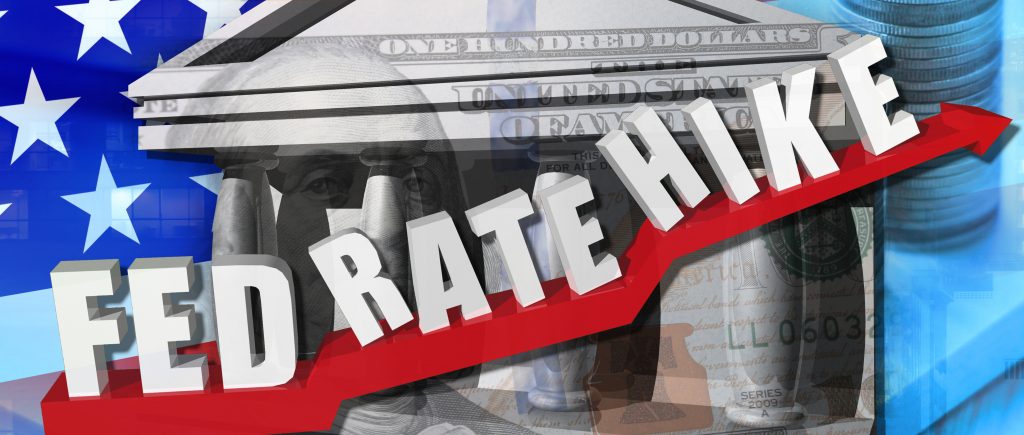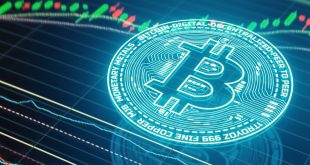Federal Reserve Chair Jerome H. Powell said on Monday that there is an obvious need to move expeditiously to a more neutral level and even more restrictive levels if needed to restore price stability.
The risk is rising that there could be an extended period of high inflation that could push longer-term expectations uncomfortably higher, Powell added, noting that the Fed needs to move expeditiously to combat that.
Action on the balance sheet could come as soon as the next Fed meeting, but no final decision has yet been made, he continued, adding that if we need to tighten beyond the common measure of the neutral rate into a more restrictive stance, then we will do so. If we need to raise the Fed funds rate by more than 25bps at a meeting of meetings, we will do so, he warning, hinting towards a potential 50bps move.
Powell voiced worry about inflation expectations and declared the central bank ready to do what it takes to control rapid price increases and said that the central bank was prepared to quickly remove economic support if inflation proved hard to tame and if doing so proved necessary to bring rapid inflation under control. He added that Fed bank was prepared to quickly remove economic support if inflation proved hard to tame.
“There is an obvious need to move expeditiously to return the stance of monetary policy to a more neutral level, and then to move to more restrictive levels if that is what is required to restore price stability,” Powell said, speaking from remarks prepared for delivery at a conference of business economists on Monday.
Policymakers raised interest rates by a quarter of a percentage point last week and forecast six more similarly sized increases this year. Powell’s remarks made clear that the Fed was prepared to move more aggressively to reduce demand and cool off the economy by making big rate increases or taking rates to relatively high levels. A restrictive rate setting would squeeze the economy, slowing the labor market and potentially pushing unemployment higher.
“If we conclude that it is appropriate to move more aggressively by raising the federal funds rate by more than 25 basis points at a meeting or meetings, we will do so,” Powell said. “And if we determine that we need to tighten beyond common measures of neutral and into a more restrictive stance, we will do that as well.”
Powell’s comments were the clearest statement yet that the central bank is prepared to forcefully attack rapid price increases to make sure that they do not become a permanent feature of the American economy.
While the Fed has often caused recessions by raising interest rates in a bid to slow down demand and cool off price increases, Powell voiced optimism that the central bank can avoid such an outcome this time, in part because the economy is starting from a strong place. Even so, he acknowledged that guiding inflation down without severely hurting the economy will be a challenge.
“No one expects that bringing about a soft landing will be straightforward in the current context,” Powell said.
But he made clear that getting price gains under control is the Fed’s priority. In addition to raising rates, the Fed plans to reduce its large bond holdings by allowing securities to expire, which would push up longer-term borrowing costs, including mortgage rates, helping to take steam out of the economy. Powell underlined that the balance sheet shrinking could begin imminently.
Action on the balance sheet “could come as soon as our next meeting in May, though that is not a decision that we have made,” Powell said.
The Fed is preparing to pull back support even as Russia’s invasion of Ukraine stokes economic uncertainty. The conflict has pushed energy prices higher, something that the Fed would typically discount, since it is likely to fade eventually. But Powell said it cannot ignore the increase at a moment when inflation was already high.
“The inflation outlook had deteriorated significantly this year even before Russia’s invasion of Ukraine,” Powell noted.
That means the oil and gas price spike could spell trouble for consumer inflation expectations, which the Fed watches closely. Expectations can become a self-fulfilling prophecy if shoppers and businesses come to expect inflation year after year and act accordingly.
“The risk is rising that an extended period of high inflation could push longer-term expectations uncomfortably higher,” Powell said.
Still, Powell noted that the job market is already very strong, which could help the economy to make it through a period with more restrictive economic policy.
“By many measures, the labor market is extremely tight, significantly tighter than the very strong job market just before the pandemic,” Powell said. “Record numbers of people are quitting jobs each month, typically to take another job with higher pay.”
Fed officials are hoping that workers — who are in short supply — will come back into the job market in the coming months and years, helping to take pressure off employers. If that happens, it could help inflation to slow down as wage growth moderates.
But employees have come back more slowly than forecasters expected. Likewise, supply chain problems like factory shutdowns and shipping snarls have been slower to heal, in part because of repeated coronavirus outbreaks.
“It continues to seem likely that hoped-for supply-side healing will come over time as the world ultimately settles into some new normal, but the timing and scope of that relief are highly uncertain,” Powell said. “In the meantime, as we set policy, we will be looking to actual progress on these issues and not assuming significant near-term supply-side relief”, he concluded.

 Noor Trends News, Technical Analysis, Educational Tools and Recommendations
Noor Trends News, Technical Analysis, Educational Tools and Recommendations




